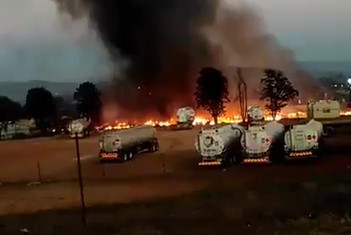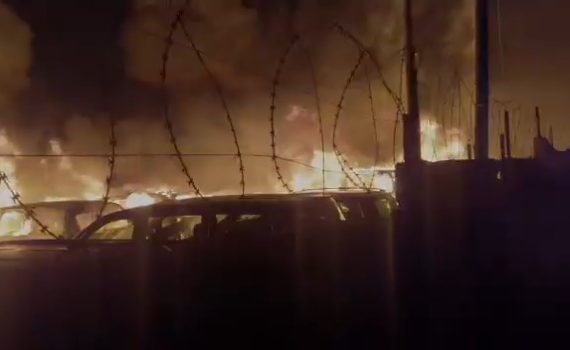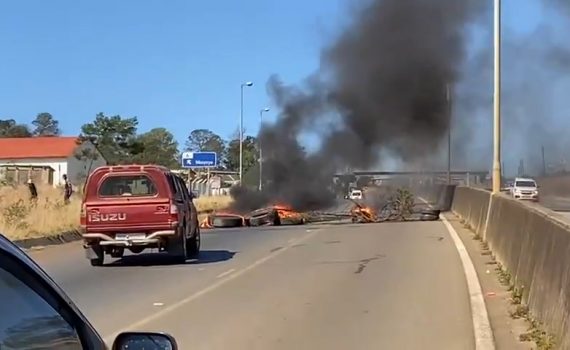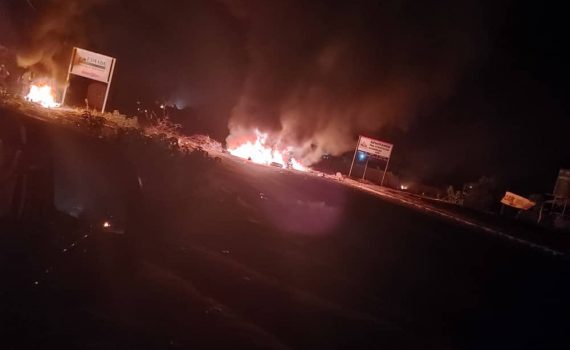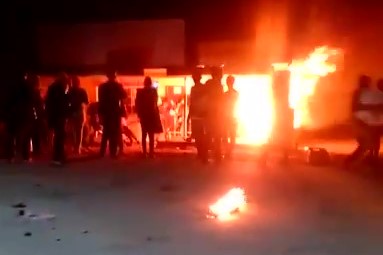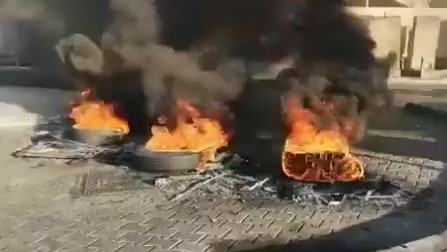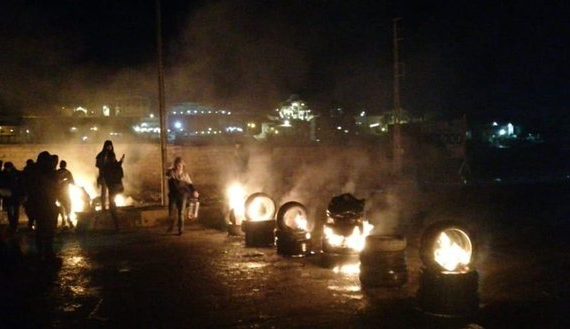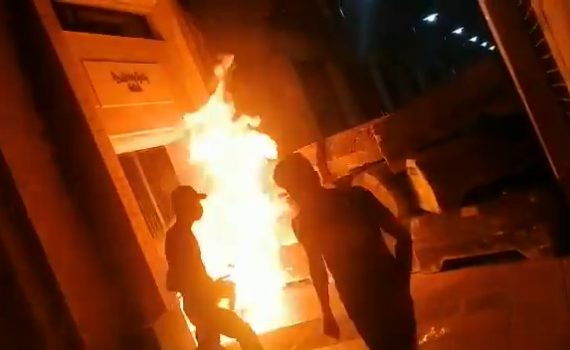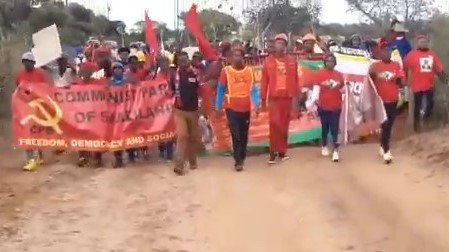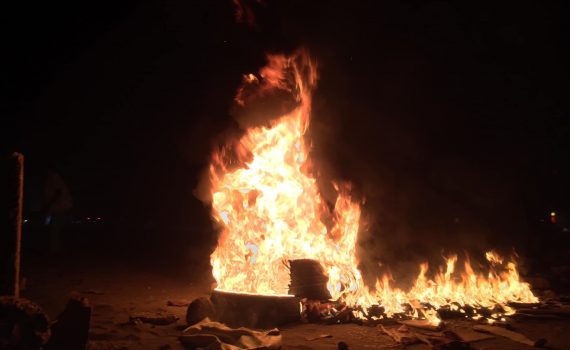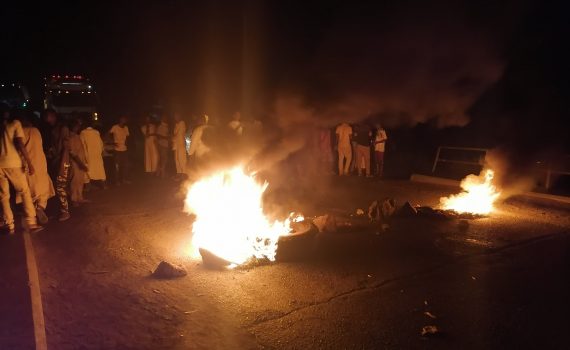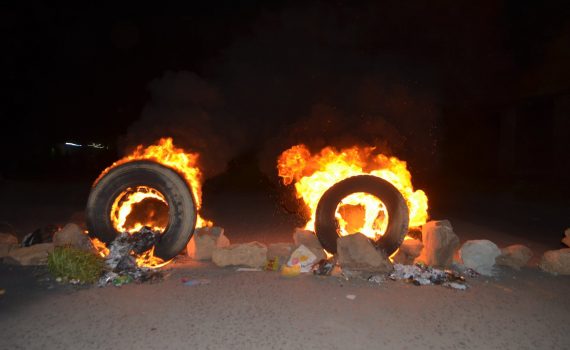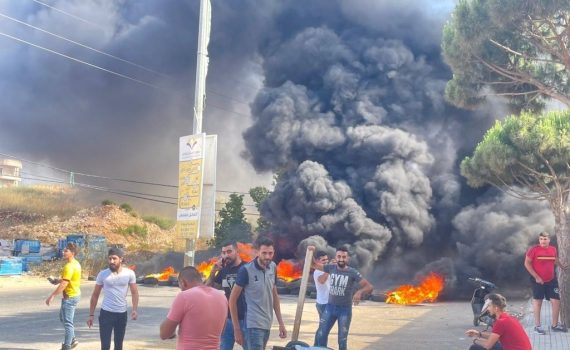Hundreds of protesters across Eswatini returned to the streets in opposition to the continued existence of the country's government, recognized as the last absolute monarchy in Africa. Demonstrators set fire to assets and businesses belonging to King Mswati, following brutal repression by security forces and police.
Anti-Corruption Protests
Hundreds of demonstrators across Eswatini protested to demand democracy in Africa's last absolute monarchy. After police brutally attacked various gatherings, participants began to target assets and businesses owned by the king.
Hundreds of protesters across Eswatini took to the streets in opposition to the country's government, the last remaining absolute monarchy of Africa. Demonstrators clashed with police and the military, setting fire to businesses and assets of the king and royal family.
Protesters in Mbabane took to the streets in opposition to the government of Eswatini, the last absolute monarchy of Africa, demanding the implementation of democracy and justice for Thabani Nkomonye, a student murdered by police. Demonstrators lit fires and blocked roads, shutting down key roads in order to cause as much disruption as possible.
Hundreds of protesters across Eswatini returned to the streets in a wave of anti-monarchy unrest following the police murder of a young man, demanding democracy be implemented in Africa's last absolute monarchy. Demonstrators blocked roads and clashed with police, also blockading and defending the homes of pro-democracy activists.
Hundreds of protesters in Msunduza, part of the Hhohho District in Eswatini, took to the streets in opposition to the country's absolute monarchy and in support of the Communist Party, riding a wave of unrest after the police murder of a young man in May. After police attacked the demonstration, the crowd set fire to businesses owned partially or fully by King Mswati.
Demonstrators in Lebanon returned to the streets in another round of protests in opposition to government incompetence in handling hyperinflation and soaring gas prices. Crowds shut down roads by placing barricades and burning tires in order to incentivize a response by authorities.
Hundreds of protesters in many sites across Lebanon protested in opposition to government repression against anti-corruption activists as well as incompetence in handling hyperinflation and soaring gas prices.
Protesters in Mawiyane, within the Hhohhlo District of Eswatini, took to the streets in opposition to the rule of Africa's last absolute monarchy, marching in support of the Communist Party of Swaziland, in a popular wave of unrest following a police murder in the South African country in May.
Lebanese demonstrators gathered at several sites across the country to decry state repression against activists and incompetence in handling the nation's recent crisis of hyperinflation and soaring gas prices. Protesters blocked roads with flaming tires and set the entrance of the Ministry of the Economy on fire.
Protesters in the Swazi town of Mafutseni took to the streets against the monarchy of Eswatini and in support of the nation's Communist Party, demanding democracy and socialism. Demonstrators decried the King's refusal to acknowledge petitions submitted previously, as well as his dictatorial rule over the country.
Dozens of protesters gathered across Sudan for a 5th day after the removal of government subsidies on fuel and petrol, which raised consumer prices by more than 200%. Using previous tactics, barricades were burnt and roadblocks were placed in order to pressure for concessions.
Dozens across Sudan protested for a 4th day in opposition to the government's removal of petrol and fuel subsidies, whose new prices for consumers more than doubled. Demonstrators blocked roads across the country and lit barricades, pressuring the government to act on their demands.
Hundreds of protesters in Sudan took to the streets for a 3rd consecutive day in opposition to the removal of government subsidies for fuel and petrol, which raised the consumer price by more than 200%. Demonstrators blocked roads, burnt tires, and placed barricades in order to pressure the government to concede.
Dozens of protesters returned to the streets of Lebanon at various sites to decry state corruption and repression against activists demonstrating against government incompetence in handling hyperinflation and soaring gas prices.

